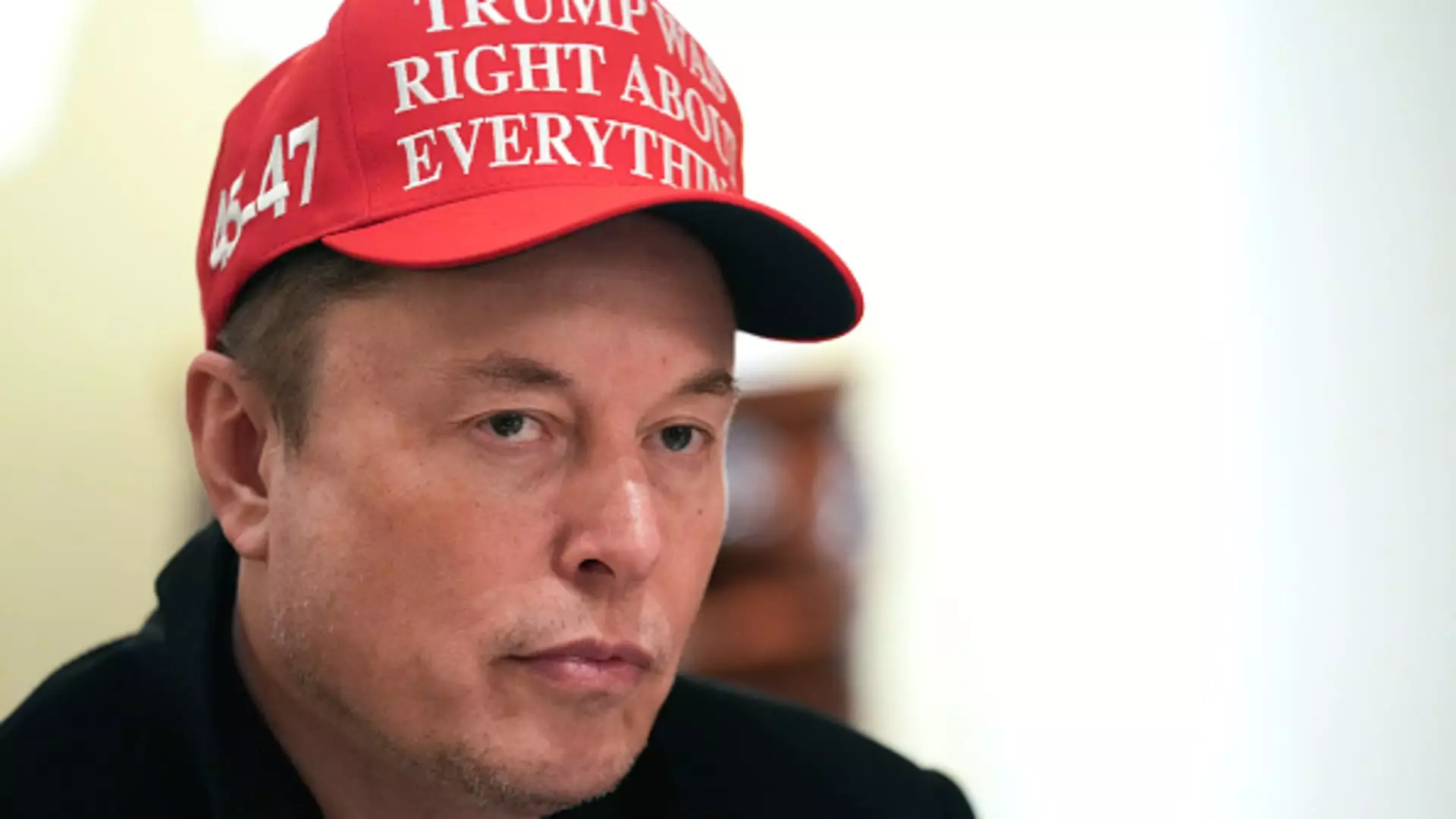Tesla Inc., the frontrunner of the electric vehicle landscape, has recently seen its stock prices dip by nearly 6% as investors brace themselves for an upcoming earnings report. This downturn is particularly concerning as the stock closed at $227.50, hovering perilously close to its annual lows. With a staggering 44% drop in value since the beginning of the year—a dramatic decline reflective of its worst quarterly performance since 2022—the company appears to be facing a formidable crisis of confidence. The prevailing sentiment among analysts is one of apprehension over “ongoing brand erosion,” signaling a growing unease about Tesla’s reputation amid Elon Musk’s myriad distractions, particularly his controversial affiliations in the political arena.
The Distraction of Leadership
Elon Musk, a name synonymous with innovation and disruption, now finds himself embroiled in a whirlwind of political distractions, which many argue are jeopardizing Tesla’s core identity and market standing. As he navigates the tumultuous waters of political influence, particularly with his support for numerous initiatives tied to the Trump administration, some analysts are questioning his commitment to Tesla. A staggering 300 questions submitted on Tesla’s investor forum focused on self-driving technology, while 200 pertained to the development of the much-anticipated Optimus humanoid robots—underscoring a community desperate for clarity on the company’s technological trajectory amidst the uncertainties of Musk’s political maneuvering.
Investor concerns come in many forms; one poignant query inquired about the board’s strategies to address the potential brand damage stemming from Musk’s political activities. Such concerns are no trifling matter in the current marketplace, where consumer sentiment can shape revenue streams almost overnight.
Impact of Political Activity on Brand Perception
The backlash to Musk’s political engagement has not been confined to the stock charts; it has catalyzed public protests and boycotts targeted at Tesla. Following Musk’s acquisition of a $290 million stake to aid Trump’s political aspirations, aggravations have intensified, particularly across Europe and the United States, where activists call for accountability from the billionaire CEO. The sentiment among consumers is shifting unfavorably; survey data from Caliber reveals that a mere 27% of U.S. respondents considered purchasing a Tesla this March—a stark decline from 46% in January 2022.
Tesla’s brand, once revered as a symbol of technological ingenuity and environmental responsibility, is increasingly viewed through a political lens—causing disillusionment among a segment of its customer base. As Oppenheimer analysts suggest, this erosion could translate into significant challenges, particularly in China, where nationalism and growing local competition are shaping buyer preferences.
Challenges in Global Markets
Amidst this backdrop, Tesla’s prospects in international markets are equally precarious. Recent vehicle delivery reports indicate a 13% year-over-year decline, raising questions about future market penetration. Analysts anticipate the company will report revenues around $21.24 billion for the first quarter, a slight dip compared to the previous year. The looming threat of Trump’s tariffs on imported goods could exacerbate the damage, particularly as competition escalates in China, a market that has become increasingly protective of its domestic automotive industry.
Should demand for Tesla vehicles falter as anticipated, the repercussions could compel the company to export more of its China-manufactured cars—a move fraught with risks and potential pricing pressure. The prospects of “permanent demand destruction” could emerge, driven by changing consumer sentiments heavily influenced by Musk’s external commitments.
Outlook for the Earnings Call
As stakeholders look toward the earnings call, expectations are fraught with a blend of apprehension and cautious optimism. Some analysts, like Dan Ives from Wedbush Securities, hope for a renewed vision from Musk that shifts the focus back to the automaker and away from political distractions. However, with shifting market dynamics and consumer sentiment at play, articulating a clear and positive turnaround strategy will be crucial if Tesla wishes to reclaim its foothold in a rapidly evolving automotive landscape.
As the countdown to the earnings report continues, what remains to be seen is whether Musk can salvage Tesla’s reputation and restore investor confidence, or if the mounting distractions will signal a longer-term struggle for the brand. In a sector as dynamic as electric vehicles, success is no longer just about innovation; it is also about the intangible connection a company maintains with its community and consumers. Tesla must reflect on this connection as it navigates through these turbulent times.


Leave a Reply